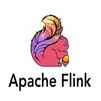
The IDMC Administration Course is designed to equip professionals with expertise in managing Informatica Intelligent Data Management Cloud (IDMC). It covers data integration, governance, security, automation, and hybrid cloud management. Learn to configure data pipelines, enforce compliance, optimize performance, and integrate with cloud platforms like AWS, Azure, and Google Cloud. Gain hands-on experience in real-time data processing, API management, and AI-driven automation for enterprise-level data solutions.
IDMC Administration Training Interview Questions Answers - For Intermediate
1. How does IDMC handle Change Data Capture (CDC)?
IDMC supports Change Data Capture (CDC) to identify and process only the changes made to source data, improving performance and reducing processing overhead. It allows for real-time replication and synchronization between databases, cloud warehouses, and applications using log-based or trigger-based mechanisms.
2. What are the key benefits of using IDMC for data integration?
IDMC offers scalability, flexibility, and AI-powered automation, making data integration seamless across cloud and on-premises environments. It provides low-code/no-code development, pre-built connectors, real-time streaming, security compliance, and cost efficiency, allowing organizations to manage complex data workflows effectively.
3. How does IDMC support multi-cloud environments?
IDMC is designed for multi-cloud data management, enabling organizations to integrate, transform, and govern data across AWS, Azure, Google Cloud, and hybrid infrastructures. It ensures secure data movement, compliance enforcement, and interoperability between different cloud providers.
4. What is the role of metadata management in IDMC?
Metadata management in IDMC helps organize, classify, and track data assets across an enterprise. Using CLAIRE AI-powered automation, it discovers, catalogs, and enriches metadata to improve data lineage, impact analysis, and governance for better decision-making.
5. How does IDMC enable automation in data workflows?
IDMC uses AI-driven workflow automation to orchestrate data pipelines, detect anomalies, optimize job scheduling, and trigger event-based data processing. It reduces manual intervention by automating transformations, governance policies, and error-handling mechanisms.
6. What are the best practices for managing user access in IDMC?
Organizations should follow Role-Based Access Control (RBAC), implement least privilege access, enable Multi-Factor Authentication (MFA), use single sign-on (SSO), and regularly audit user permissions. IDMC also supports custom roles and granular security policies for better control.
7. How does IDMC ensure high availability and disaster recovery?
IDMC provides built-in fault tolerance, auto-scaling, and geo-redundant data replication to maintain high availability. It supports automated failover, real-time monitoring, and backup strategies, ensuring minimal downtime and quick recovery from disruptions.
8. What is the significance of Cloud Master Data Management (CMDM) in IDMC?
CMDM ensures a single source of truth by harmonizing, cleansing, and synchronizing master data across cloud and on-premises systems. It eliminates duplicate records, improves data consistency, and enhances reporting accuracy across an organization.
9. How can organizations monitor and troubleshoot data pipelines in IDMC?
IDMC provides real-time monitoring dashboards, log analytics, and automated alerts for tracking data pipelines. It allows proactive troubleshooting using AI-driven anomaly detection, job execution history, error logs, and performance analytics.
10. What are the key considerations for migrating from PowerCenter to IDMC?
Migrating from PowerCenter to IDMC requires assessing existing workflows, mapping on-premises ETL processes to cloud-based equivalents, reconfiguring security policies, optimizing transformation logic for cloud execution, and validating data consistency post-migration.
11. How does IDMC handle unstructured data?
IDMC supports unstructured data ingestion, transformation, and processing using AI-based data discovery and integration with big data platforms, cloud object storage, and data lakes. It enables metadata tagging, NLP-based classification, and automated data profiling.
12. What is the purpose of API and Application Integration in IDMC?
API and Application Integration allows seamless data exchange between cloud applications, databases, and third-party services. IDMC provides API management, orchestration, and event-driven integration to connect applications in real-time and automate workflows.
13. How does IDMC support data encryption and protection?
IDMC uses AES-256 encryption for data at rest and in transit, along with key management, tokenization, and access controls. It ensures compliance with global data privacy regulations and prevents unauthorized access through role-based security policies.
14. What are the key challenges in implementing IDMC, and how can they be addressed?
Challenges include data complexity, cloud connectivity issues, compliance concerns, performance bottlenecks, and change management. These can be addressed by defining a clear cloud strategy, leveraging AI-driven automation, implementing strong governance policies, and ensuring continuous training for administrators.
15. How does IDMC support hybrid data architecture?
IDMC enables secure data movement between on-premises and cloud environments using hybrid connectivity options like secure agents, VPN tunneling, and cloud-native integration services. It ensures real-time synchronization and seamless interoperability.
IDMC Administration Training Interview Questions Answers - For Advanced
1. How does IDMC handle hybrid cloud deployments, and what challenges arise in such environments?
IDMC supports hybrid cloud deployments by enabling secure data movement between on-premises and cloud platforms using secure agents, VPN tunnels, and API-driven connectivity. Challenges in hybrid environments include latency issues, network security risks, compliance concerns, and the complexity of maintaining data consistency across multiple infrastructures. Organizations mitigate these challenges by optimizing data synchronization schedules, implementing strong encryption policies, leveraging edge computing for real-time processing, and using Informatica Secure Agent for seamless on-premise-to-cloud integration.
2. What strategies can be employed to ensure fault tolerance and high availability in IDMC?
Fault tolerance in IDMC can be achieved through geo-redundant backups, distributed computing architectures, failover clustering, and real-time replication mechanisms. High availability is ensured by load balancing, auto-scaling, and disaster recovery planning. Organizations must also implement health monitoring tools, set up proactive failure alerts, and regularly test business continuity plans to minimize downtime.
3. How does IDMC facilitate metadata-driven automation, and why is it important?
Metadata-driven automation in IDMC is powered by CLAIRE AI, which dynamically maps metadata across systems, auto-generates transformations, and provides intelligent recommendations. This approach reduces manual intervention, enhances data lineage tracking, and improves governance. By using metadata-driven automation, organizations can accelerate ETL/ELT workflows, standardize data processing logic, and ensure compliance with evolving regulatory frameworks.
4. What are the considerations for implementing role-based access control (RBAC) in IDMC?
RBAC in IDMC ensures fine-grained access control by assigning roles and privileges based on job functions. Best practices include adopting the principle of least privilege, enforcing Multi-Factor Authentication (MFA), regularly reviewing access logs, and integrating with identity providers such as Azure AD or Okta. Organizations must also establish audit trails to track access violations and ensure compliance with security policies.
5. How does IDMC integrate with modern DevOps workflows for CI/CD automation?
IDMC enables Continuous Integration and Continuous Deployment (CI/CD) through integration with Git repositories, API-based automation, and Infrastructure-as-Code (IaC) frameworks like Terraform. By implementing version-controlled deployment strategies, automated pipeline testing, and rollback mechanisms, organizations can ensure faster, more reliable deployments with minimal disruptions.
6. What are the key performance optimization techniques for IDMC workflows?
Optimizing IDMC workflows involves reducing unnecessary data transformations, leveraging in-memory processing, partitioning large datasets, enabling parallel execution, and minimizing API call overhead. Performance tuning also includes adjusting workload distribution, optimizing cache settings, and leveraging serverless computing for elastic scalability.
7. How does IDMC support real-time event-driven architectures?
IDMC supports event-driven architectures through streaming data ingestion from Kafka, AWS Kinesis, Azure Event Hub, and MQTT-based IoT devices. It enables serverless execution of triggered workflows, webhook integrations, and real-time anomaly detection. Best practices include using schema registry for streaming consistency, implementing data buffering mechanisms, and ensuring low-latency message processing.
8. What mechanisms does IDMC provide for ensuring regulatory compliance in financial services and healthcare industries?
IDMC provides built-in compliance frameworks for industries like finance (SOX, PCI DSS, Basel III) and healthcare (HIPAA, HITECH, GDPR). Security mechanisms include data masking, secure tokenization, access logs, automated data lineage tracking, and role-based policies. AI-driven compliance analytics also help detect policy violations and enforce regulatory controls in real-time.
9. How can IDMC be used to enable AI/ML-driven data processing?
IDMC integrates with AI/ML frameworks such as AWS SageMaker, Google Vertex AI, and Azure Machine Learning to facilitate predictive analytics, automated data classification, and anomaly detection. It allows data scientists to preprocess, enrich, and feed high-quality data into AI models, ensuring scalable machine learning pipelines.
10. What are the security best practices for API management within IDMC?
Securing API management in IDMC involves OAuth-based authentication, API rate limiting, encrypted data transmission, and anomaly detection for API abuse. Organizations should implement API gateways, enforce IP whitelisting, enable audit logging, and integrate with SIEM systems for real-time threat monitoring.
11. How does IDMC ensure efficient workload management and resource optimization?
IDMC offers intelligent workload management through predictive analytics, dynamic workload balancing, and auto-scaling policies. Administrators can prioritize critical jobs, redistribute workloads based on system health, and implement time-based scheduling strategies to reduce infrastructure costs and improve processing efficiency.
12. What considerations are important for integrating IDMC with third-party data lakes and warehouses?
Integrating IDMC with Snowflake, Databricks, Amazon Redshift, and Google BigQuery requires data format compatibility, workload optimization, pushdown transformation support, and security policy alignment. Organizations must also ensure governance integration, compliance validation, and performance tuning for optimal interoperability.
13. What strategies should be followed to migrate legacy ETL processes to IDMC?
Migrating legacy ETL processes to IDMC involves assessing existing workflows, refactoring transformations for cloud-native execution, leveraging automated migration tools, and ensuring data consistency post-migration. Organizations should adopt parallel run strategies, rollback procedures, and performance benchmarking to validate migration success.
14. How does IDMC handle failure recovery and error handling in data pipelines?
IDMC provides automatic retry mechanisms, error logging, proactive failure detection, and self-healing workflows. Organizations should implement checkpointing strategies, configure alerts for job failures, enable real-time monitoring, and maintain backup policies to ensure seamless recovery from failures.
15. What is the future of IDMC, and how is it evolving with emerging technologies?
IDMC is evolving with serverless computing, AI-driven automation, real-time analytics, and edge computing. Future advancements include self-optimizing pipelines, enhanced multi-cloud interoperability, deeper AI integration for predictive governance, and blockchain-based data security. Organizations adopting IDMC should focus on leveraging automation, improving agility, and enhancing scalability to stay competitive.
Course Schedule
| Apr, 2025 | Weekdays | Mon-Fri | Enquire Now |
| Weekend | Sat-Sun | Enquire Now | |
| May, 2025 | Weekdays | Mon-Fri | Enquire Now |
| Weekend | Sat-Sun | Enquire Now |
Related Courses
Related Articles
Related Interview
- Certified Threat Intelligence Analyst (CTIA) Training Interview Questions Answers
- AVEVA Enterprise Resource Management (ERM) Interview Questions Answers
- Smart Plant Electrical Admin (SPEL) Interview Questions Answers
- Microsoft Azure Active Directory Interview Questions Answers
- AVEVA E3D Admin - Interview Question Answers
Related FAQ's
- Instructor-led Live Online Interactive Training
- Project Based Customized Learning
- Fast Track Training Program
- Self-paced learning
- In one-on-one training, you have the flexibility to choose the days, timings, and duration according to your preferences.
- We create a personalized training calendar based on your chosen schedule.
- Complete Live Online Interactive Training of the Course
- After Training Recorded Videos
- Session-wise Learning Material and notes for lifetime
- Practical & Assignments exercises
- Global Course Completion Certificate
- 24x7 after Training Support

 (1).png)








 Join our Live Instructor-Led online classes delivered by industry experts
Join our Live Instructor-Led online classes delivered by industry experts